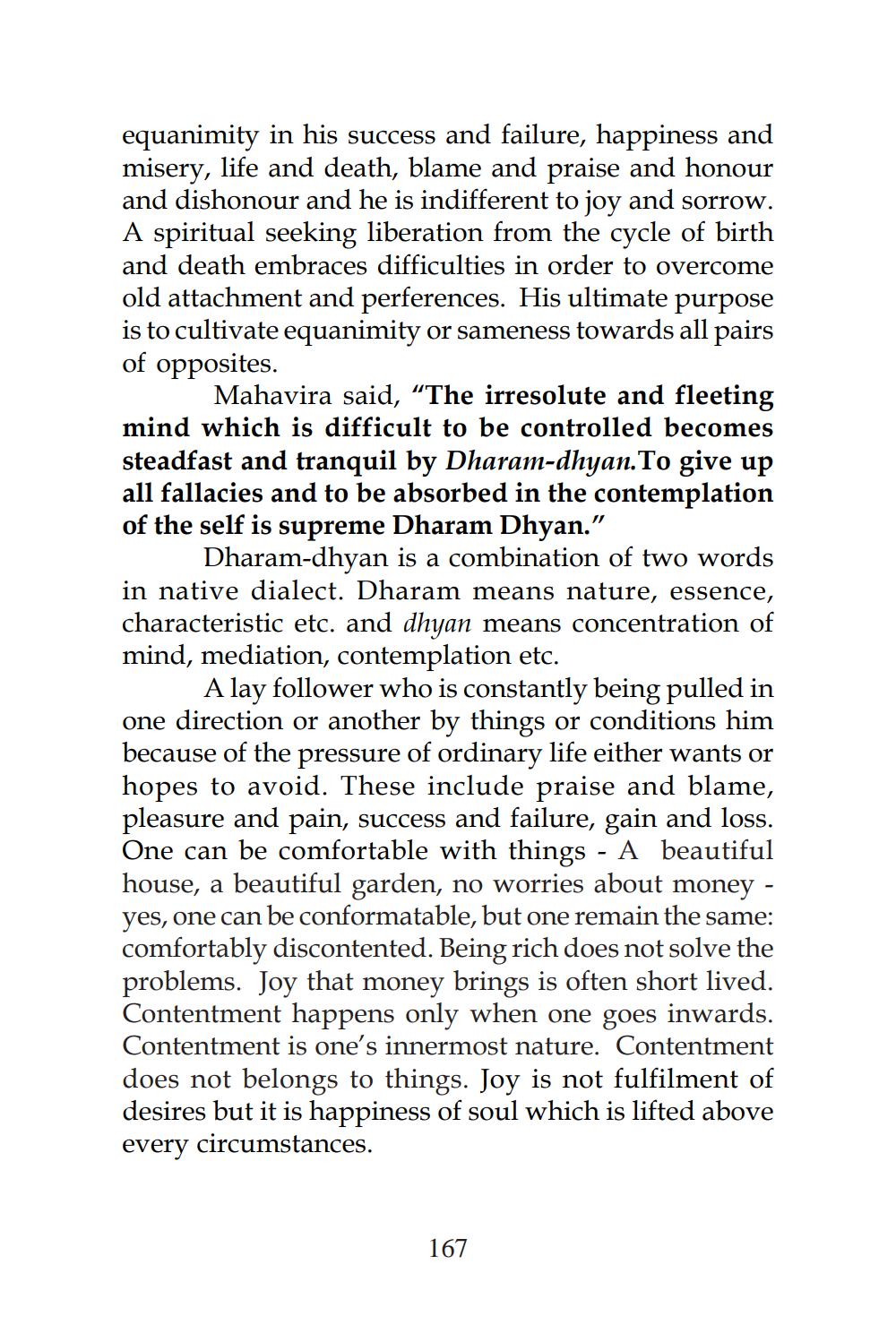________________
equanimity in his success and failure, happiness and misery, life and death, blame and praise and honour and dishonour and he is indifferent to joy and sorrow. A spiritual seeking liberation from the cycle of birth and death embraces difficulties in order to overcome old attachment and perferences. His ultimate purpose is to cultivate equanimity or sameness towards all pairs of opposites.
Mahavira said, "The irresolute and fleeting mind which is difficult to be controlled becomes steadfast and tranquil by Dharam-dhyan. To give up all fallacies and to be absorbed in the contemplation of the self is supreme Dharam Dhyan."
Dharam-dhyan is a combination of two words in native dialect. Dharam means nature, essence, characteristic etc. and dhyan means concentration of mind, mediation, contemplation etc.
A lay follower who is constantly being pulled in one direction or another by things or conditions him because of the pressure of ordinary life either wants or hopes to avoid. These include praise and blame, pleasure and pain, success and failure, gain and loss. One can be comfortable with things - A beautiful house, a beautiful garden, no worries about money - yes, one can be conformatable, but one remain the same: comfortably discontented. Being rich does not solve the problems. Joy that money brings is often short lived. Contentment happens only when one goes inwards. Contentment is one's innermost nature. Contentment does not belongs to things. Joy is not fulfilment of desires but it is happiness of soul which is lifted above every circumstances.
167




